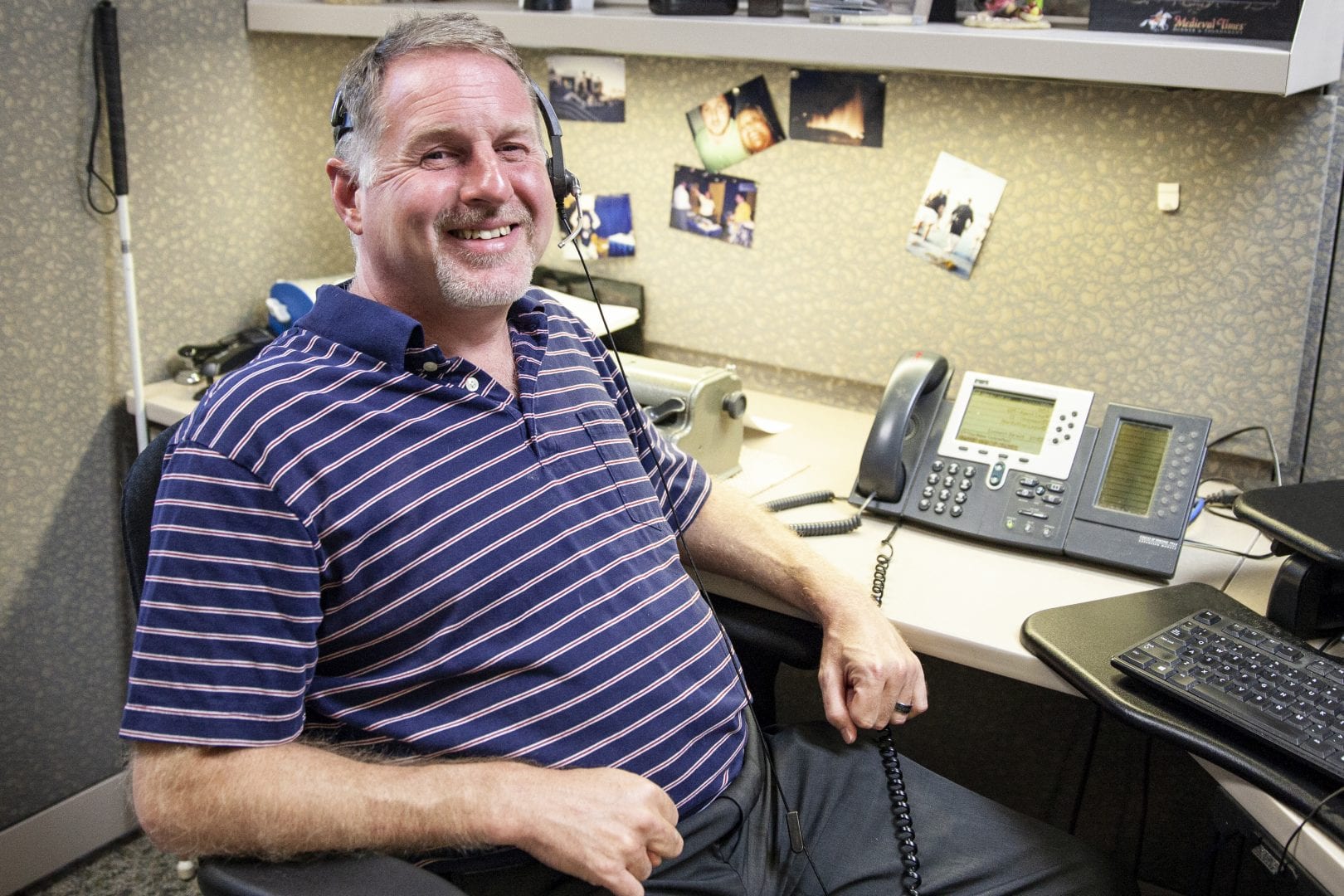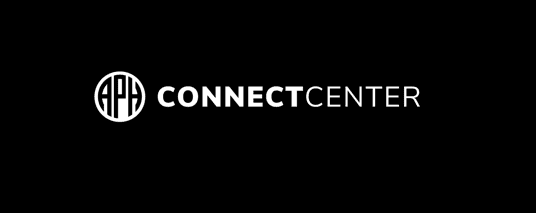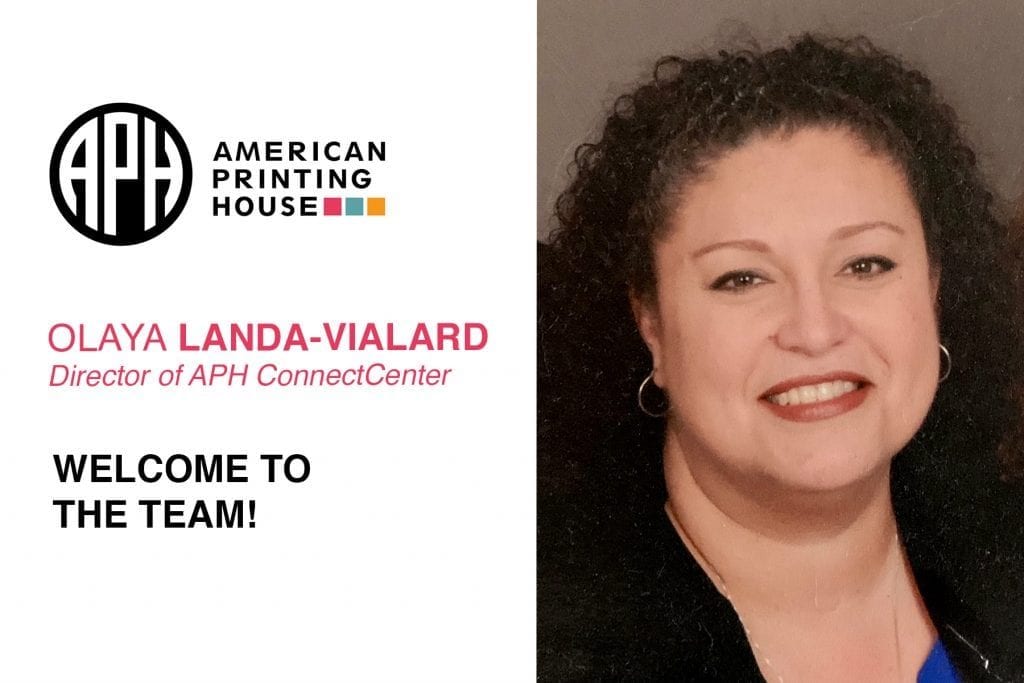Meeting You Where You Are

The APH ConnectCenter Information and Referral Line (I&R) gets every kind of question you can imagine about being blind or visually impaired. After all, that’s why they’re there: to provide information and resources.
But every so often, they get a question that takes them by surprise.
A while back, the center’s I&R Services Coordinator, Alan Lovell, answered a call from a man in his 30s who was in a really tough spot. He has diabetes and he began rapidly losing his vision. He didn’t have any family or friends to call on, so he drove himself to the hospital, where he stayed for two months while they got his diabetes under control. Unfortunately, during that time he lost his sight, along with his job and his apartment. When he was discharged from the hospital, all he had was his truck and his phone.
“He called me from his truck sitting in the parking lot of the hospital,” Alan says. “That’s something I wasn’t prepared for, but I got to work advocating for him. I contacted a local agency that could come get him and connected him with a rehabilitation center for the blind. I’ve spoken with him a few times since, and every time he’s a little better, asking questions about devices or services. He reconnected with some family in another state and he moved to live with them.”
That story exemplifies the importance of the kind of support the APH ConnectCenter provides. Alan points out that the APH ConnectCenter isn’t a crisis hotline — they don’t handle calls like that one on a regular basis — and they don’t provide medical or legal advice. But they’re pros at directing people to the information and resources they need.
Answers for every question
Alan and I&R Services Specialist Melanie Peskoe, who respond to incoming phone calls and emails, don’t work from a script, although they do have a database of information at the ready. Melanie also keeps the center’s online directory of services updated.
Some questions come up more frequently than others, but every question is unique and requires a personalized response. The center hears from people with a recent diagnosis of vision loss or blindness, or a family member with one. Other inquiries involve job hunting, using technology, or how to continue living independently.
“We try to meet the person where they are,” Alan explains. “Many times, people receive a diagnosis and don’t get the information they need, like the names of local agencies that provide free services. So we connect them with the nearest agency and explain how it works.”
Alan and Melanie are both veterans in the blindness field, so they can often answer questions off the top of their heads. They also track new questions that come in and how they were able to assist that person, as part of the physical database of information and resources the center maintains. What’s more, they’re both visually impaired, and many callers appreciate knowing they’re talking to someone who personally understands their situation.
The resources people need, when they need it
Much of the information people seek — such as living with vision loss or employment resources — is readily available on the family of websites housed under the APH ConnectCenter. Along with the information and referral service staffed by Alan and Melanie, in 2018 APH became the steward of a number of resources originally developed by the American Foundation for the Blind (AFB), among APH’s closest partners. Those sites include FamilyConnect, VisionAware, and APHCareerConnect, which provide a variety of resources for families and working adults. Each site also has an email address and Facebook page where people can reach out to the APH ConnectCenter for answers to specific questions.
But for people who aren’t comfortable with technology or just want to speak to a friendly voice, the APH ConnectCenter’s phone line is a popular option.
“Right now, a lot of the agencies people would normally turn to are closed, so we’re finding ourselves getting more creative about providing them with resources we already have on hand or turning to our contacts at the agencies,” Alan explains. “APH’s website says we’re open for business even though many of us are working from home, and sometimes people just want someone to talk to about what they’re going through right now.”
But even after people have returned to work and school, there will always be a need for the APH ConnectCenter, and the people who work there will continue to take great pride in the way they’re able to help people.
“Making a difference for people is incredibly gratifying,” Alan says. “Many people contact us more than once — like the young man who called from his truck in the hospital parking lot — and it means a lot to know we’ve been able to help.”
The toll-free APH ConnectCenter phone line — 1-800-232-5463 — is manned live from 8 a.m. to 8 p.m. Eastern time. Questions emailed to connectcenter@aph.org are answered as quickly as possible.
Share this article.
Related articles

APH ConnectCenter: Revamped and Making a Difference
In 2018, APH took over stewardship of several important information resources that connect people who are blind, or losing their...

Olaya Landa-Vialard Joins APH Team as Director of APH ConnectCenter
The APH ConnectCenter provides information and connections to resources for people of all ages who have vision loss, or are...
